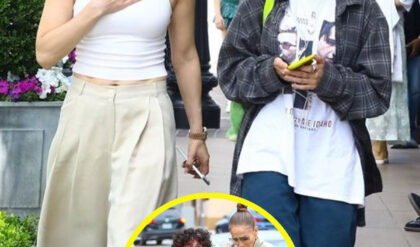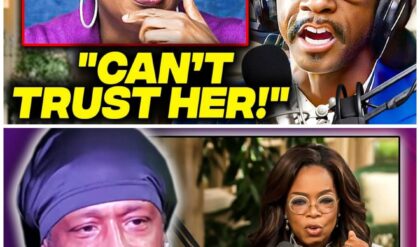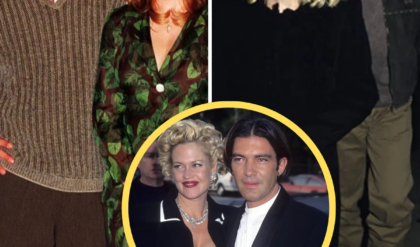Jason Momoa Alleges Maui Donation Scam Involving Oprah Winfrey and Dwayne ‘The Rock’ Johnson: Fact or Fiction?
In the world of celebrity news and controversy, few allegations have sparked as much intrigue and debate as those recently leveled by Jason Momoa against Oprah Winfrey and Dwayne ‘The Rock’ Johnson. Momoa, known for his roles in blockbuster films like Aquaman and Game of Thrones, has publicly accused Winfrey and Johnson of orchestrating what he describes as a “Maui donation scam.” These allegations have not only captured headlines but have also raised questions about the integrity of celebrity philanthropy and the true impact of charitable initiatives.
According to Jason Momoa’s statements in a widely circulated interview, Oprah Winfrey and Dwayne Johnson allegedly collaborated on a donation campaign purportedly aimed at supporting the native Hawaiian community in Maui. The initiative, as described by Momoa, was marketed as a noble effort to preserve cultural heritage, promote environmental conservation, and enhance local infrastructure.
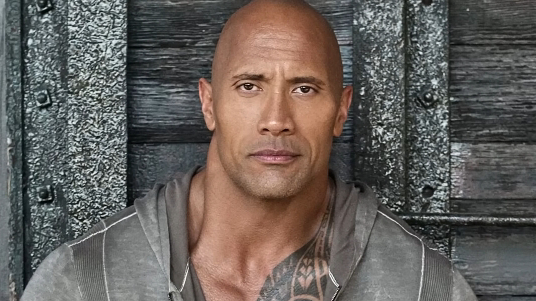
However, Momoa claims that the actual outcomes of this campaign were far from its stated objectives. He suggests that the funds raised were mismanaged or diverted for purposes unrelated to the promised charitable goals. Moreover, Momoa alleges that Winfrey and Johnson used their celebrity status to garner public support and financial contributions under false pretenses, misleading both donors and the community they purportedly aimed to assist.
In the wake of Jason Momoa’s accusations, reactions have been swift and varied. Supporters of the actor have praised his courage in speaking out against alleged misuse of charitable donations and the exploitation of indigenous communities for personal gain. They argue that his claims shed light on ethical concerns within celebrity philanthropy, urging greater accountability and transparency in how donations are solicited and disbursed.
Conversely, critics have questioned the validity of Momoa’s allegations, citing a lack of concrete evidence to substantiate his claims. Some have pointed out that without specific details or documentation to support his accusations, Momoa’s statements may be perceived as speculative or potentially damaging to the reputations of Winfrey and Johnson, both of whom have longstanding commitments to philanthropy and community service.
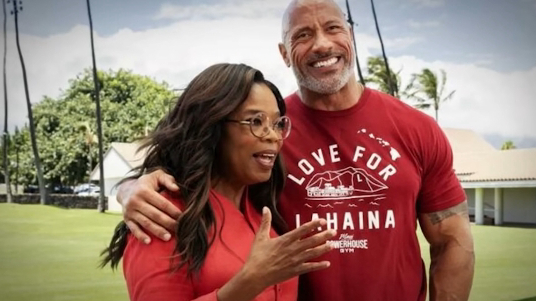
Oprah Winfrey and Dwayne Johnson are widely recognized not only for their accomplishments in entertainment but also for their philanthropic endeavors. Winfrey, in particular, has been celebrated for her support of various charitable causes, including education, healthcare, and empowerment initiatives for women and children. Similarly, Johnson has been involved in numerous philanthropic efforts, focusing on issues such as children’s healthcare, disaster relief, and military veteran support.
Both celebrities have used their platforms to raise awareness and funds for causes they are passionate about, leveraging their influence to make a positive impact on communities worldwide. However, allegations of misconduct or mismanagement in their charitable activities, if proven true, could potentially tarnish their reputations and call into question the integrity of their philanthropic legacies.
The controversy surrounding Jason Momoa’s allegations underscores broader concerns about accountability in celebrity philanthropy. While high-profile donations and fundraising campaigns can generate significant resources for worthy causes, they also require meticulous oversight and transparency to ensure that funds are used effectively and in accordance with donors’ intentions.
In recent years, there have been instances where celebrity-endorsed charitable initiatives faced scrutiny over financial practices or the allocation of resources. Such controversies highlight the importance of rigorous due diligence, ethical stewardship, and independent oversight in managing philanthropic endeavors, regardless of the stature or goodwill of those involved.
As the debate over Jason Momoa’s allegations continues, it is essential to approach the issue with a commitment to factual accuracy and responsible journalism. Investigative efforts should focus on gathering reliable evidence and corroborating testimonies to substantiate or refute claims of misconduct in the Maui donation campaign allegedly involving Oprah Winfrey and Dwayne Johnson.

Moreover, stakeholders in the philanthropic sector, including donors, nonprofit organizations, and regulatory authorities, play a crucial role in upholding standards of integrity and accountability. Transparent reporting, independent audits, and clear communication are essential elements in fostering public trust and ensuring that charitable contributions make a meaningful difference in communities that need support.
The controversy surrounding Jason Momoa’s allegations against Oprah Winfrey and Dwayne Johnson has ignited a passionate debate about celebrity philanthropy, ethical responsibility, and the impact of high-profile endorsements on charitable giving. While Momoa’s claims have yet to be fully substantiated, they have prompted important discussions about the need for transparency, accountability, and ethical governance in all aspects of philanthropic endeavors.
As the story unfolds, it is imperative for stakeholders to remain vigilant in seeking the truth, respecting due process, and advocating for practices that uphold the highest standards of integrity in philanthropy. By doing so, we can collectively strive to ensure that charitable efforts genuinely benefit those in need and reflect the values of honesty, fairness, and compassion that underpin the spirit of giving.
